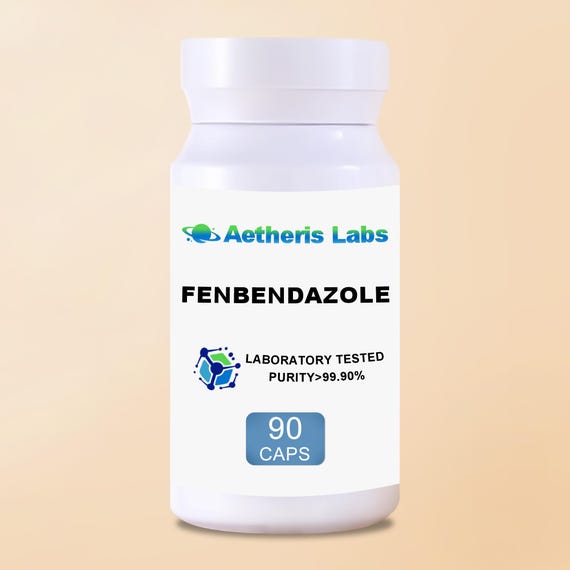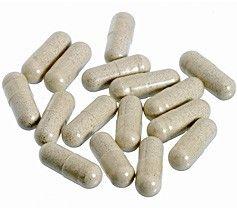All You Need to Understand About Fenbendazole and Its Uses in Animal Care Solutions
Fenbendazole is a commonly recognized anthelmintic drug in veterinary treatment. It effectively targets different intestinal bloodsuckers in family pets. Comprehending its mechanism and ideal applications is essential for pet proprietors. This drug supplies remarkable benefits yet also needs careful dosage and surveillance. As pet treatment progresses, checking out fenbendazole's duty can offer insights into keeping perfect health for beloved animals. What should animal proprietors find out about its administration and security?
What Is Fenbendazole?
Fenbendazole is an anthelmintic medication mostly used to deal with parasitic infections in animals. This broad-spectrum dewormer works versus a variety of gastrointestinal parasites, including roundworms, hookworms, whipworms, and particular sorts of tapeworms. It is commonly utilized in pet dogs, pet cats, steeds, and livestock, making it a functional alternative for family pet owners and veterinarians alike. Fenbendazole is normally provided orally, offered in various solutions such as granules, tablet computers, or suspensions. The medication is normally taken into consideration secure, with a reduced occurrence of side impacts, although it is necessary for pet dog proprietors to adhere to dose directions carefully. By getting rid of parasitic infections, fenbendazole aids keep overall health and wellness and well-being in pets, guaranteeing they stay energetic and lively. Its efficiency and safety profile have actually added to its extensive use in veterinary method, developing fenbendazole as a cornerstone in animal care solutions.

Just How Does Fenbendazole Work?
Targeting parasites at a cellular level, fenbendazole interrupts their metabolic procedures. This anthelmintic medicine primarily prevents the feature of microtubules, vital parts of the bloodsucker's cellular framework. By binding to tubulin, a protein that forms microtubules, fenbendazole avoids the setting up of these frameworks, which are vital for different mobile functions, consisting of transportation and department. Therefore, the influenced bloodsuckers are unable to maintain their life cycle, bring about their ultimate death.
Fenbendazole likewise disrupts energy manufacturing in parasites by preventing the enzyme fumarate reductase, crucial for their metabolism. This twin activity not only restrains their capability to replicate but additionally endangers their energy supply, additional enhancing its effectiveness. Overall, fenbendazole's targeted mechanism enables reliable control of a wide range of parasitical infections, making it a useful tool in vet medicine for the treatment of ravaged animals.
Usual Uses of Fenbendazole in Family Pet Care
In the domain name of vet medicine, fenbendazole is generally used for its effectiveness against a selection of parasitic infections in pets. This broad-spectrum anthelmintic is mostly used to deal with gastrointestinal parasites such as roundworms, hookworms, whipworms, and tapeworms. Fenbendazole is additionally reliable versus specific protozoan infections, including giardiasis.
Veterinarians often prescribe fenbendazole for routine deworming in pups and kitties, given their sensitivity to these bloodsuckers. Additionally, it is made use of in adult pets and felines as part of a comprehensive bloodsucker control program.
Fenbendazole is favored for its safety account, making it suitable for usage in different breeds and ages of family pets. It is commonly provided in oral kind, with granules or tablets, enabling for simple unification into a pet's diet. Normal use fenbendazole adds to preserving overall wellness and well-being in pets by preventing and handling parasitical infections effectively.
Benefits of Fenbendazole for Pet dogs
Fenbendazole uses significant benefits for animals, especially as an efficient therapy for numerous parasitical infections. Its safety account makes it suitable for a variety of animals, making certain that both canines and pet cats can benefit from its usage without considerable danger. This combination of effectiveness and security settings fenbendazole as a valuable option in animal care.
Efficient Parasite Treatment
Various pet dog owners look for efficient services for bloodsucker problems, and fenbendazole has actually become a trustworthy option. This broad-spectrum anthelmintic medication targets different internal bloodsuckers, including roundworms, hookworms, and whipworms. Fenbendazole interrupts the basal metabolism of these bloodsuckers, causing their elimination from the pet's system. Its performance is remarkable across different varieties, making it a versatile option for many pet dog owners - fenbendazole 222. Furthermore, fenbendazole is usually well-tolerated, with minimal adverse effects reported, which boosts its allure as a treatment option. Regular use fenbendazole can help keep a family pet's wellness and convenience by avoiding the problems related to parasitical infections. Generally, fenbendazole attracts attention as a valuable tool in the fight against typical bloodsuckers in pets
Safe for Numerous Animals

Dosage and Management Standards
When considering fenbendazole for animals, recognizing the appropriate dosage is essential for effectiveness and safety. Advised dosage guidelines vary based upon the kind of pet and the specific condition being treated. Additionally, numerous administration techniques can affect the total success of the treatment.
Recommended Dose Guidelines
Although fenbendazole is an extensively utilized anthelmintic in veterinary medication, developing the appropriate dose for pets is essential to ensure both efficiency and safety and security. The suggested dosage commonly varies based upon the kind of parasite being treated and the pet's weight. For pet dogs and cats, a typical guideline suggests providing official website 50 mg per kg of body weight once daily for 3 successive days. Nevertheless, in some instances, a vet might suggest a much longer treatment duration or readjust the dose based upon private health and wellness problems (fenbendazole 222). It is crucial for pet dog owners to seek advice from a veterinarian prior to carrying out fenbendazole, as unsuitable dosages may lead to inefficient therapy or prospective adverse effects, highlighting the value of expert assistance in animal treatment


Management Approaches Clarified
Carrying out fenbendazole to pets needs mindful factor to consider of the approach to ensure ideal absorption and effectiveness. The most usual management approaches include dental solutions, such as tablet computers or suspensions. Tablet computers ought to be provided whole, while suspensions have to be shaken well prior to usage. For pets that are difficult to medicate, blending fenbendazole with a small amount of food can enhance acceptance. Dosing usually depends upon the family pet's weight and the details condition being dealt with. It is essential to comply with veterinarian referrals very closely and finish the complete training course of treatment, also if symptoms boost. Monitoring for adverse effects is also crucial, as damaging responses can happen, albeit rarely. Proper management ensures the drug's effectiveness and the animal's health.
Security Factors To Consider and Prospective Negative Effects
While fenbendazole is widely recognized for its effectiveness in dealing with different parasitical infections in pets, it is essential to assess the safety and security profile and possible negative effects linked with its usage. Typically, fenbendazole is considered secure when provided at recommended dosages, but some animals may experience unfavorable reactions. Typical side impacts consist of stomach disturbances such as vomiting and looseness of the bowels, along with sleepiness or anorexia nervosa.
In rare instances, allergies may occur, causing symptoms like swelling or trouble breathing (fenbendazole 222). It is important for pet dog proprietors to monitor their pets carefully during treatment and report any type of uncommon actions to a veterinarian. Additionally, fenbendazole needs to not be made use of in pet dogs with well-known hypersensitivity to the medicine or in expecting pets unless especially advised by a veterinarian. On the whole, educated use and veterinary support can help minimize risks associated with fenbendazole treatment in pets
Frequently Asked Concerns
Is Fenbendazole Safe for Expectant Pet Dogs?
The safety of fenbendazole for pregnant animals remains unclear. Some studies suggest potential risks, while others show it might be safe. Appointment with a veterinarian is vital to ensure the health and wellness of both the mommy and her children.
Can Fenbendazole Be Made Use Of for Pet cats?
Fenbendazole can be used for felines, largely to deal with certain sorts of parasitical infections. It is crucial for pet proprietors to seek advice from a vet for suitable dosage and safety and security guidelines details to their feline's health and wellness.
The Length Of Time Does Fenbendazole Require To Function?
The moment it takes for fenbendazole to function normally ranges from a few days to a week, depending upon the specific problem being treated and the private pet's feedback to the medication. Constant application is vital.
Exist Any type of Interactions With Various Other Medications?
Possible communications with other drugs must be thoroughly considered when providing fenbendazole. Consulting a veterinarian is necessary to assure risk-free combinations, as certain medications might modify its efficiency or enhance the threat of negative effects in pet dogs.
Where Can I Purchase Fenbendazole for Family Pets?
Fenbendazole More about the author for pets can be purchased at veterinary facilities, animal supply shops, and online retailers. It is important to guarantee the product is especially developed for animals to validate safety and effectiveness in treatment.